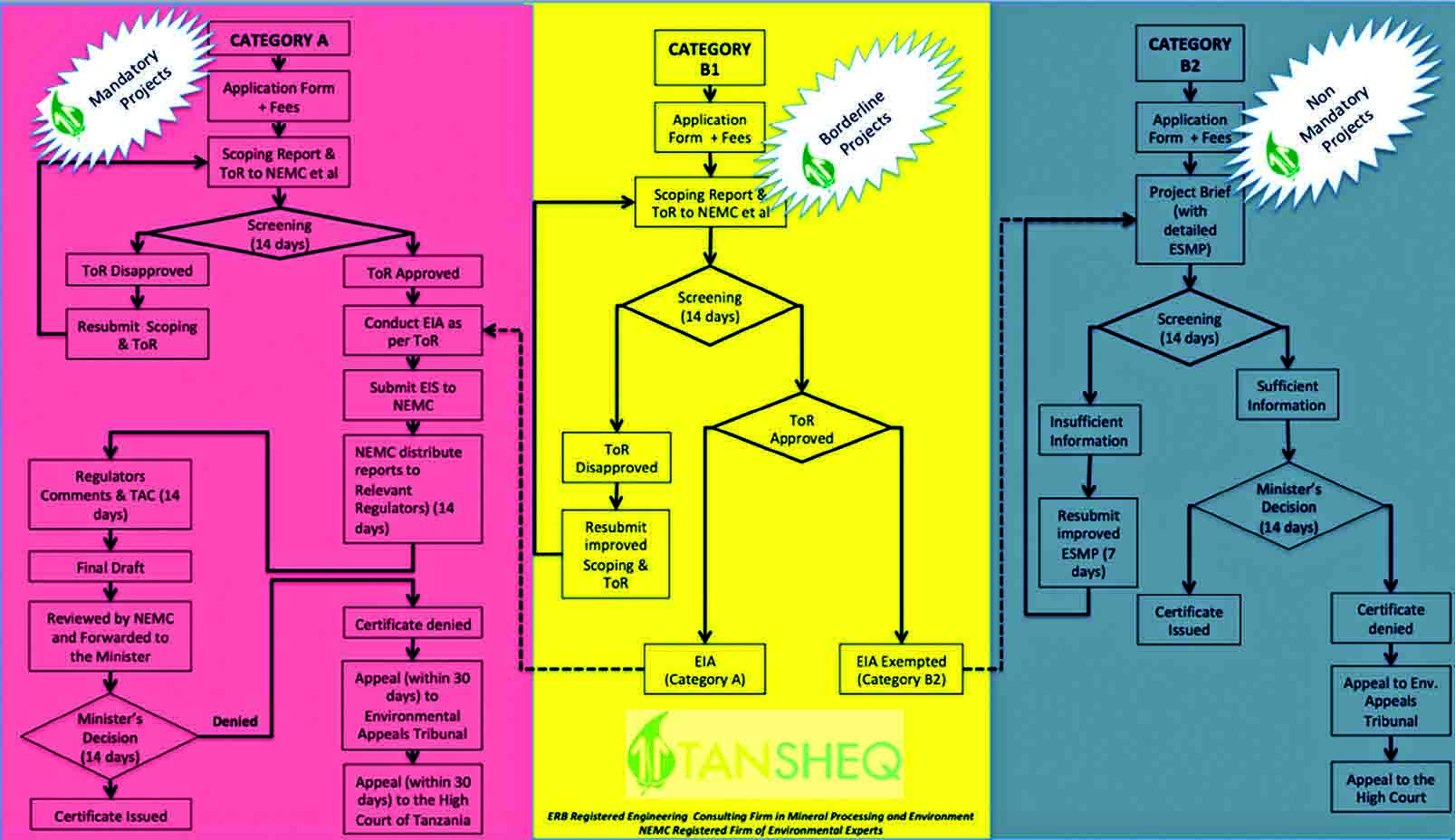Service
Environmental and Social Impact Assessment (ESIA)
Service
Environmental and Social (ESIA)Impact Assessment
An Environmental and Social Impact Assessment (ESIA) is a decision making tool that predicts the environmental and social consequences which a future project/intervention might entail. It is carried out before project implementation and proposes measures to minimize, mitigate and/or offset potential negative impacts (threats) and to enhance opportunities (positive impacts) identified.
In Tanzania, EIA process is regulated by The Environmental Management (Environmental Impact Assessment and Audit) (Amendment) Regulations, 2018 and shall be read as one with the Environment Impact Assessment and Audit Regulations, 2005 which is the principal Regulations.
The Regulation classifies the future projects/interventions into three categories taking into consideration their magnitude of impacts on the environment. The categories are:
- “A” for Mandatory Projects;
- “B1” for Borderline Project;
- “B2” for non-Mandatory; and
- “Special Category.
The First Schedule of EIA and Audit (Amendment) Regulation, 2018 details criteria for categorizing projects.
Zanzibar conducts ESIA based on the following principles:
- Participation–appropriate/timely access for interested parties
- Transparency–open and accessible assessment decisions
- Certainty–process/timing agreed in advance
- Credibility–undertaken with professionalism/objectivity Tansheq, is registered to conduct ESIA in Tanzania mainland and
- Cost effectiveness – environmental protection at the least cost to society
- Flexibility – adaptable to deal efficiently with any proposal and decision situation
- Practicality–information/outputs readily usable in decision making and planning

